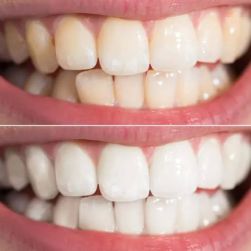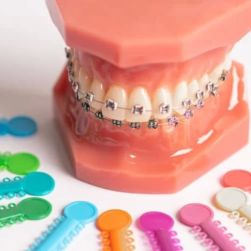Finding a Dentist Who Specializes in Oral Surgery
As someone who has gone through various dental treatments over the years, I can tell you that finding the right dentist, especially one who specializes in oral surgery, can make a world of difference. Whether it's wisdom tooth removal, dental implants, or even more complex procedures, oral surgery requires a level of expertise that not every general dentist can provide. In this article, I’ll share my personal journey and what I’ve learned along the way in choosing an oral surgeon.
What is Oral Surgery and Why is It Important?
Oral surgery refers to any surgical procedure that involves the teeth, gums, jaw, or related areas of the face. This includes everything from simple tooth extractions to more complex surgeries like jaw realignment or bone grafting for dental implants. As someone who once needed a tooth extraction that was anything but routine, I quickly learned that having a dentist with the right qualifications and experience could significantly impact the outcome.
The need for an oral surgeon often arises when a problem cannot be treated through routine dental procedures. For example, if you have impacted wisdom teeth that need to be removed or if your teeth are severely misaligned, these are issues best handled by a specialist in oral surgery. Understanding the importance of choosing the right oral surgeon is the first step toward ensuring your surgery is successful and your recovery is as smooth as possible.
How to Find a Dentist Specializing in Oral Surgery
When I first needed to find an oral surgeon, I was overwhelmed by the sheer number of options available. However, after some research and personal experiences, I found a process that works. Here’s what I learned and what you can do to ensure you’re choosing the right professional:
- Ask for Recommendations: The best place to start is by asking for recommendations. I turned to my regular dentist, and he gave me a few referrals to oral surgeons in my area. It’s important to get recommendations from trusted professionals, as they can suggest specialists who have experience with your specific needs. Don’t hesitate to ask friends, family, or colleagues about their own experiences with oral surgery.
- Check Qualifications: Not all dentists perform oral surgery, and not all oral surgeons are equal. A qualified oral surgeon should be board-certified, meaning they’ve completed extensive training beyond dental school. This is crucial, as oral surgery requires specific skills. Make sure to check the surgeon's credentials, education, and areas of expertise. When I looked up my surgeon, I was reassured by their credentials and positive reviews from patients who had undergone similar procedures.
- Consider Experience and Specialization: Oral surgery is a broad field, and different oral surgeons may specialize in different types of surgery. Some may focus on dental implants, while others may specialize in jaw surgery or treating oral diseases. I highly recommend finding a surgeon who has experience in the specific procedure you need. The more experience a surgeon has, the better your chances of a successful outcome.
- Look for Reviews and Patient Testimonials: Another step I took was reading online reviews from other patients. These reviews provided insights into the surgeon’s demeanor, the quality of their work, and how they handled recovery. Testimonials from patients who had similar procedures were especially valuable. I also looked for reviews that mentioned how the office staff treated patients—this is important for overall comfort and care during the process.
- Evaluate the Office and Facilities: A visit to the surgeon’s office can tell you a lot about the practice. Is the office clean and organized? Are the staff professional and attentive? During my visit, I felt comfortable with the office’s environment and the staff’s friendly yet professional demeanor. A well-maintained office is often indicative of the surgeon’s attention to detail and quality of care.
- Discuss Costs and Insurance: Oral surgery can be expensive, and not all procedures are covered by insurance. I made sure to ask about payment options and insurance coverage up front. Some surgeons offer financing options, which helped make my procedure more affordable. Always clarify the costs involved, including consultation fees, surgery fees, and post-surgery care.
Common Types of Oral Surgery
Oral surgery can cover a wide range of procedures. Here are some of the most common types of surgeries I learned about during my search:
- Wisdom Tooth Extraction: One of the most common types of oral surgery, wisdom tooth extraction can be a simple or complex procedure depending on how the teeth are positioned. I had mine removed as a preventive measure, and the process was relatively smooth with the right oral surgeon.
- Dental Implants: Dental implants are often the best solution for replacing missing teeth. My surgeon explained the process thoroughly before the procedure, which involved placing a titanium post in the jawbone to act as an anchor for the replacement tooth. This procedure requires skill and precision to ensure that the implants are properly placed.
- Jaw Surgery: This type of surgery can correct issues with the jaw, such as overbite or underbite. It’s a more complex procedure, but for patients who need it, it can dramatically improve both function and appearance.
- Bone Grafting: If you’re getting dental implants but don’t have enough bone density in your jaw, bone grafting may be necessary. I was fascinated by how this procedure works, as it involves taking bone from another area of your body or a donor to build up the jawbone for implant placement.
The Recovery Process
After my oral surgery, I was anxious about the recovery process. However, the surgeon provided clear instructions on what to expect, and with a little patience, I was able to heal quickly. The recovery time varies depending on the complexity of the surgery, but in general, most people experience some swelling, bruising, and discomfort in the days following the procedure. It’s essential to follow all post-surgical care instructions, including taking prescribed medications and attending follow-up appointments to ensure everything is healing correctly.
For me, the recovery was relatively smooth, and with the right aftercare, I felt back to normal in just a few weeks. It's important to remember that oral surgery isn’t something to rush. Take the time you need to heal and follow your oral surgeon’s instructions carefully.
Why Choosing the Right Surgeon is Crucial
Looking back, I realize that choosing the right oral surgeon was one of the most important decisions I made. The right surgeon not only has the necessary skills but also makes sure you are comfortable and informed throughout the process. They ensure that you have a successful procedure with minimal discomfort and guide you through recovery every step of the way. If I had chosen the wrong professional, my experience could have been entirely different, and not in a good way!
If you’re looking for a dentist who specializes in oral surgery, I recommend taking your time, doing your research, and finding a qualified surgeon who can cater to your specific needs. And remember, oral surgery is often a necessary step in maintaining your long-term oral health, so choosing the right specialist is key to ensuring a successful outcome.
For those of you in search of top-notch dental services, I highly recommend checking out Dentistry Toothtruth. They offer a great selection of recommended clinics and specialists to make your search for an oral surgeon much easier and more reliable. With their help, you can rest assured knowing you're in capable hands.







